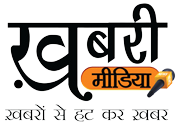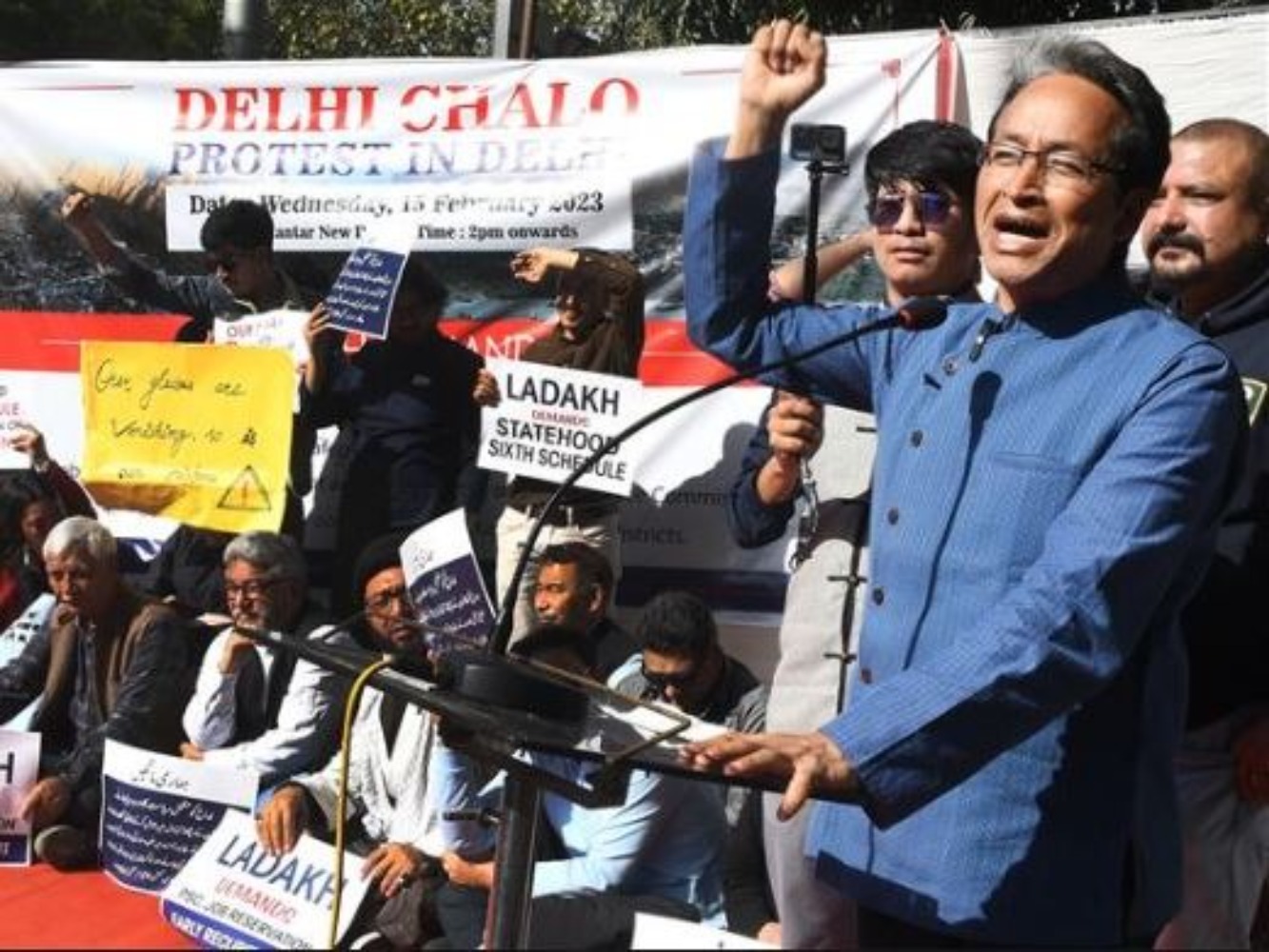Overcoming religious and political divides, leaders from both districts are now uniting for “a greater cause”, which was earlier described as “a fight for Ladakhi identity”.
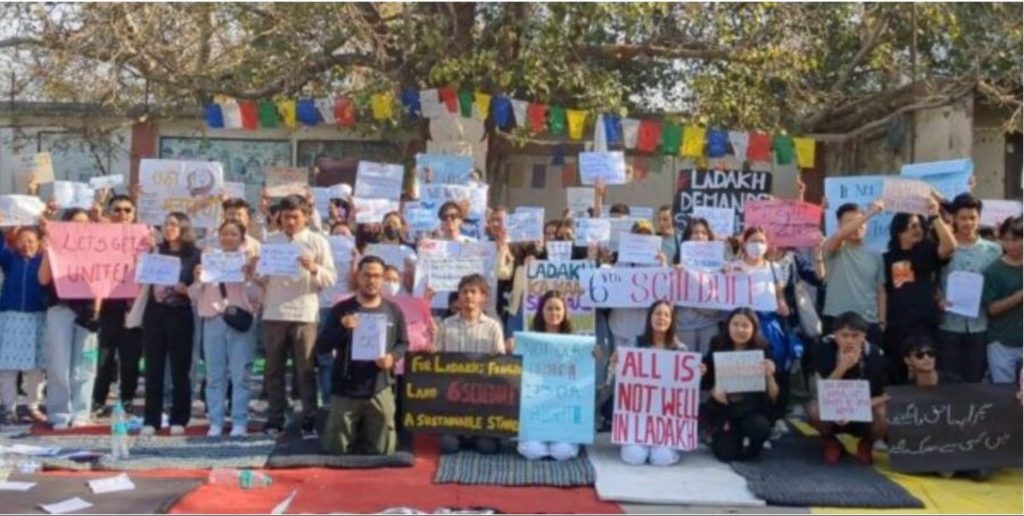
Couple of years ago when central government carved out Ladakh from Jammu & Kashmir, the regional capital, Leh, erupted in joy. A majority of its voters even cast ballots for Prime Minister Narendra Modi’s party for fulfilling a long-term demand. To subscribe please click tau.id/2iy6f and access our live channel.
They had accused the Kashmir-based leadership of discriminating against the Buddhist-majority Himalayan region, known for its snowcapped peaks and lush grasslands. But the victorious celebration in UT’s capital city did not last long.
ALSO READ: Online Chiktsa Mitr for Rural Women
WHAT IS THE STORY
The government’s decision to run the territory directly from New Delhi has raised concerns about the region’s democratic marginalisation, lack of say in developmental projects and militarisation of the ecologically sensitive Himalayan region, located at an altitude of 5,730 metres (18,800 ft).
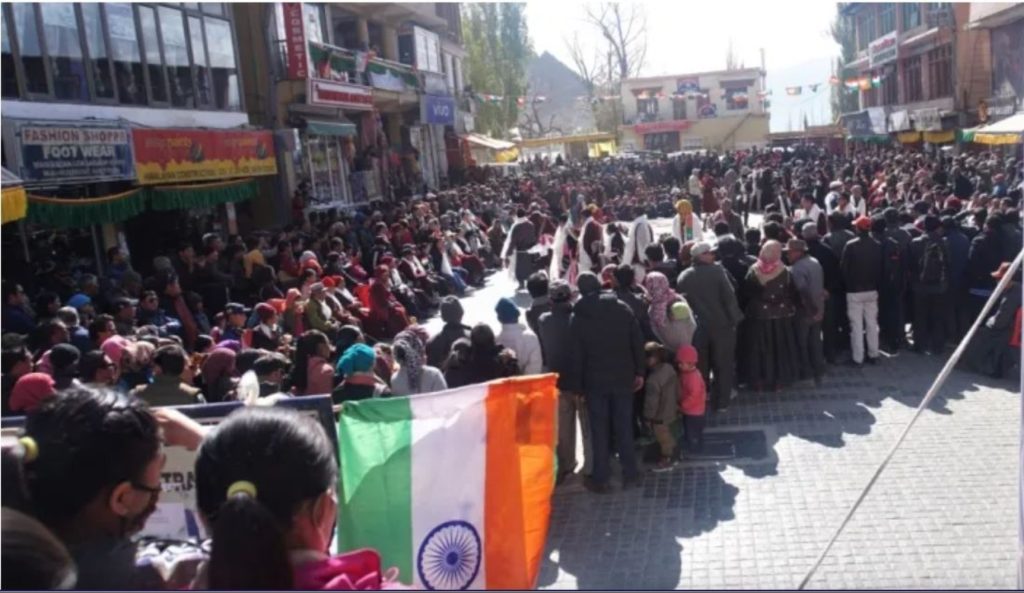
On March 6, hundreds of people assembled in Leh after the latest round of talks with the interior ministry yielded no results. Scientist-turned-Activist Sonam Wangchuk launched a 21-day fast unto death to demand a devolution of power and constitutional protections to fight against what he said is an onslaught of outside influence that threatens the loss of their tribal identity.
Furthermore, they have lost political representation in the current bureaucratic setup and have little say in the development projects announced by the New Delhi-run administration. New laws passed by the federal administration that allows outsiders to settle and start businesses in the region has also alarmed locals.
WHAT IS THE PROTEST FOR
As his ‘fast unto death’ protest entered its 13th day, noted climate activist Sonam Wangchuk continued to press for his demand for constitutional safeguards for the Union Territory of Ladakh, and protection of ecologically fragile Ladakh’s ecosystem from industrial and mining lobbies.
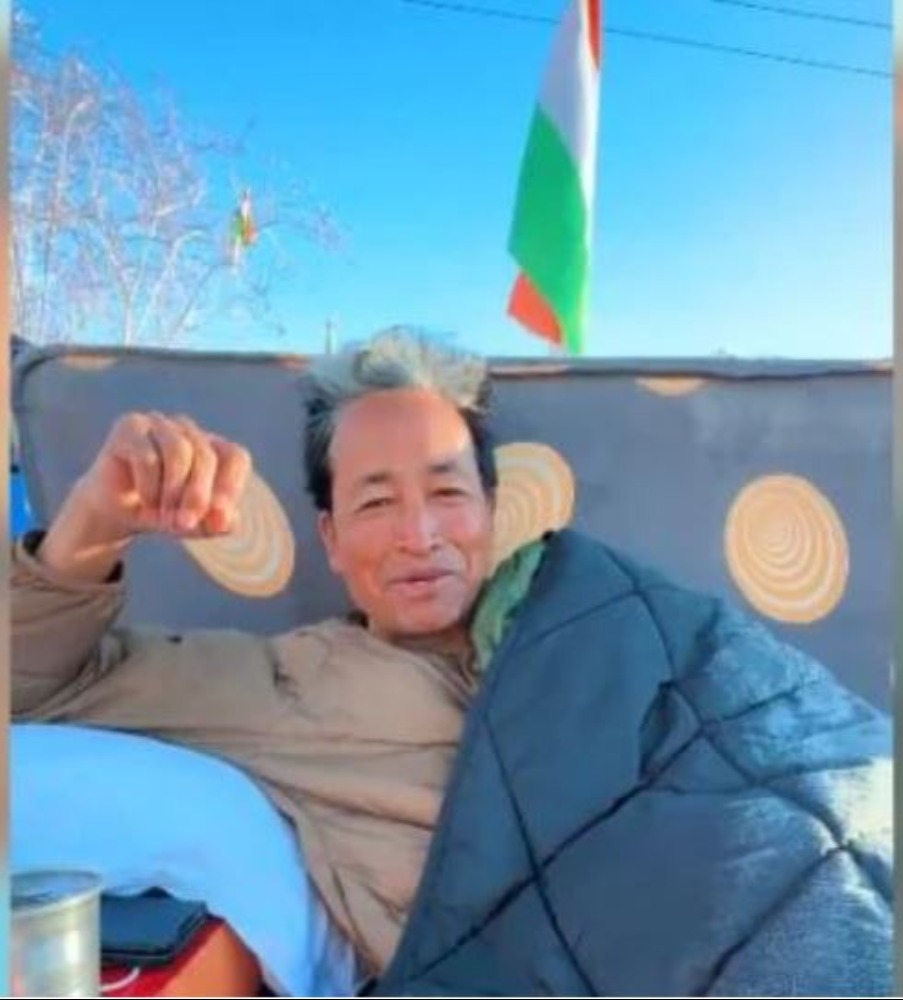
Wangchuk wrote in his latest post on X on Monday, while thanking those who participated in the previous day’s protest against Ladakh’s climate crisis, “250 people slept hungry in -12 °C to remind the Indian Government of their promises to safegurad Ladakh’s environment and its tribal indigenous culture. This Government likes to call India the ‘Mother of Democracy’. But if India denies democratic rights to people of Ladakh, then it could only be called a Stepmother of Democracy.”
They are demanding statehood for Ladakh, a tribal status under the Sixth Schedule of the Indian Constitution, which allows the formation of autonomous administrative divisions with some legislative, judicial and administrative autonomy within a state. They make laws on important things like land, forests, water and mining – crucial for a region in which 97 percent of the population is tribal.
The protest comes after the Ladakhi leaderships entered into talks with Centre to discuss threadbare the demands for Ladakh’s statehood, inclusion of the Union Territory in the Sixth Schedule of the Constitution and the setting up of an exclusive public service commission for the high-altitude region.
THE NUMBER GAME OF 21 & 6
The fast will unfold in phases, adding that each phase will have 21 days. “Twenty-one days – because this is the longest fast that Mahatma Gandhi kept during the Independence struggle, and I want to follow the Mahatma’s path where we inflict pain on ourselves so our government and policymakers notice our pain and act in time,” the activist said in his March 6 address.

The Sixth Schedule under Article 244 of the Indian Constitution provides for the formation of autonomous administrative regions called Autonomous District Councils (ADCs). Currently, it applies to the northeastern states of Assam, Meghalaya, Mizoram (three Councils each), and Tripura (one Council).
ADCs are granted autonomy on legislative, judicial, and administrative matters within a state. They can have up to 30 members with a term of five years, and can make laws, rules and regulations with regard to land, forest, water, agriculture, village councils, health, sanitation, village- and town-level policing, etc.
Conclusion
Following the repeal of Article 370 in August 2019, and the subsequent enactment of the Jammu and Kashmir Reorganisation Act, 2019, Ladakh was recognised as a separate Union Territory “without legislature”. UTs like New Delhi and Pondicherry (now Puducherry) have their own Legislative Assemblies.
